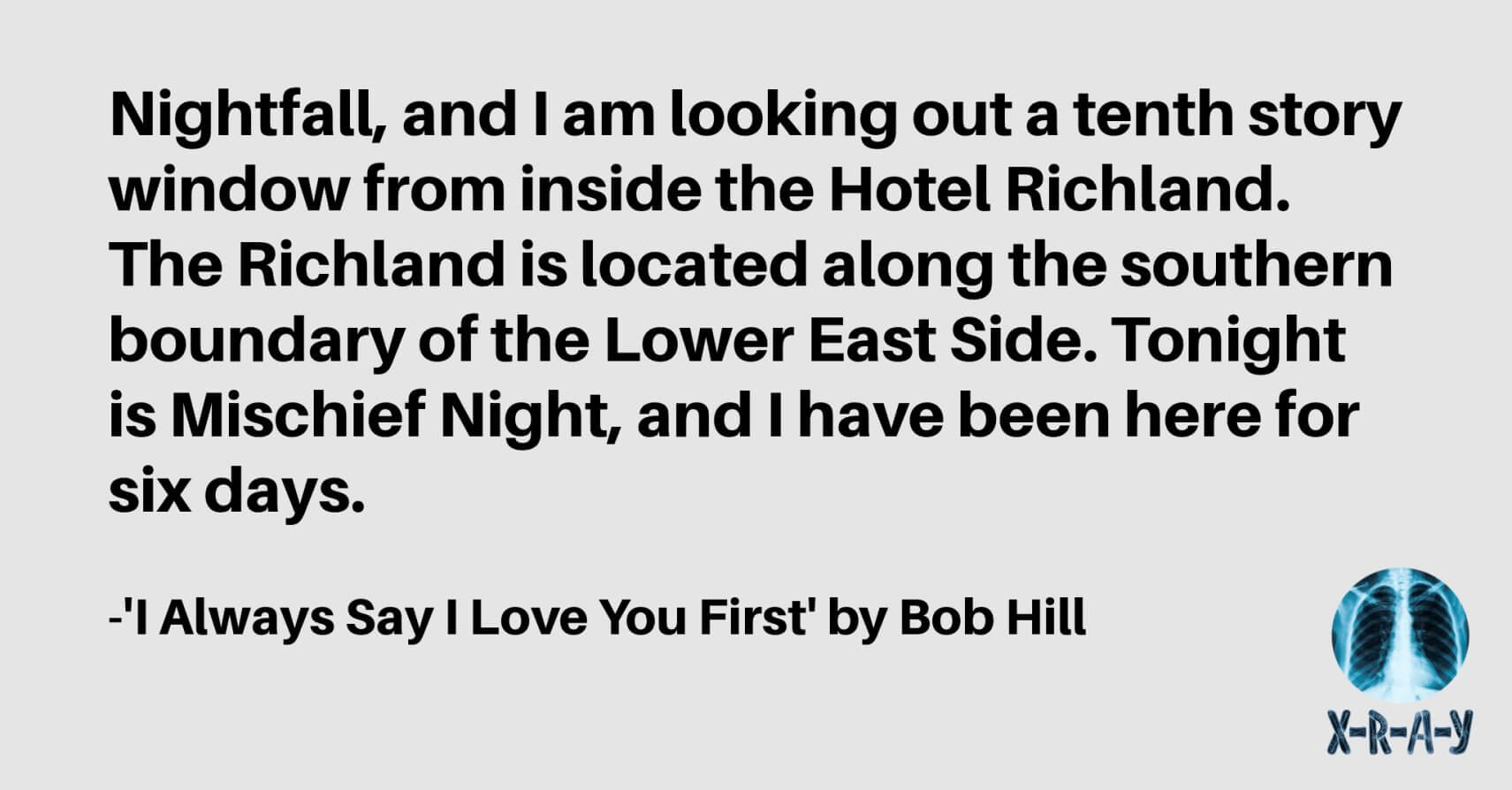
I ALWAYS SAY I LOVE YOU FIRST by Bob Hill
I want to tell you about a day in late August of 2009. It is just past noon, and this is a clear day, a gorgeous day with almost zero headwind. I am sitting on the street-level deck of an Upper East Side coffee shop named M. Rohrs’. M. Rohrs’ is located just off of 86th and 2nd. The traffic is moving briskly throughout this part of town, and that is because the city has settled into a malaise, an annual two-week period that bridges the divide between true summer and the academic fall. This is a quiet time in…
